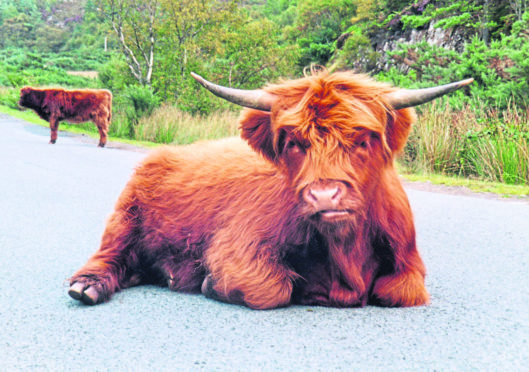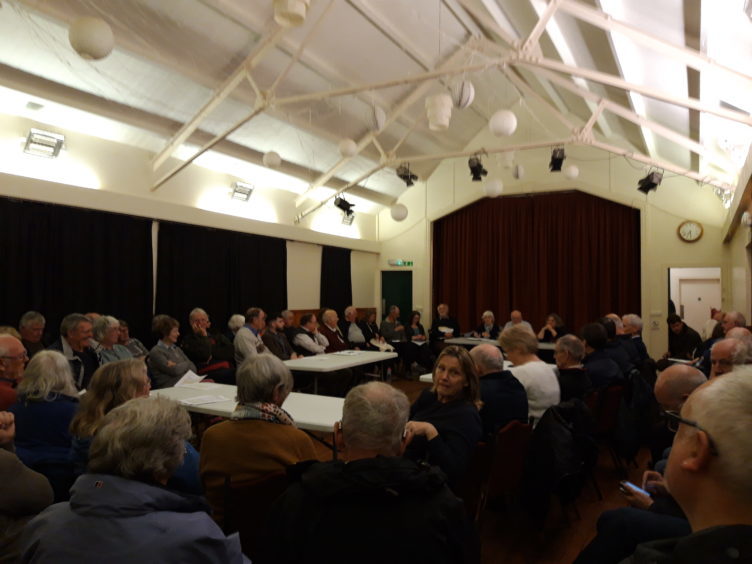Angry villagers have branded plans to let cattle once again roam their local streets and beachfront as “nonsense”.
Dozens of residents aired their concerns about the return of 46 cows to Plockton after a 15-year ban at a dramatic village hall meeting last night.
Following an ecoli outbreak, the animals were banished from the streets of the west coast community through a deal struck by the National Trust and the Plockton common grazings committee.
But locals have been told the agreement will “no longer stand” and last night’s meeting was set up to find a way forward.
Many expressed concerns that the cows will damage cars and rampage through the streets.
Others worried they could spark another ecoli outbreak.
Former community council chairman Charlie MacRae said that the reason for banning the cattle 15 years ago still stands.
He said: “There is a real risk of ecoli and children should not be near these cows.”
Mr MacRae added that not all crofters were agreed on “bringing the cows down” and said the decision to allow cattle back into the village should be unanimous.
One man, who only gave his name as Denis, called the plans “nonsense” and told attendees that a boy in England had died just by touching a cow.
“You just want compensation, that’s all you want,” he said.
“You’ve no right in law to bring them down.
“We do a damn lot for this village. But we don’t bring cows down.”
The meeting also heard from a man who said he was a clinician who dealt with gut bugs.
He claimed to have used the telephone directory to poll a number of residents on their views and found that 90% did not want cows back in Plockton.
“I would hate to see the goodwill of the civic duty of keeping the village looking so nice and all our flowers go to waste because cows are back on the street,” he said.
National Trust Scotland’s representative, Iain Turnbull, said the organisation had not and will not be undertaking a risk assessment on cows being reintroduced onto the street.
He said: “As the landowner we are not able to say no to the cows. The law is quite clear.
“It is a right to do it.
“Fifteen years we had a collective agreement (but) it was voluntary.”
He added that he was “happy” to talk to the crofters in order to find an “amicable solution”.

